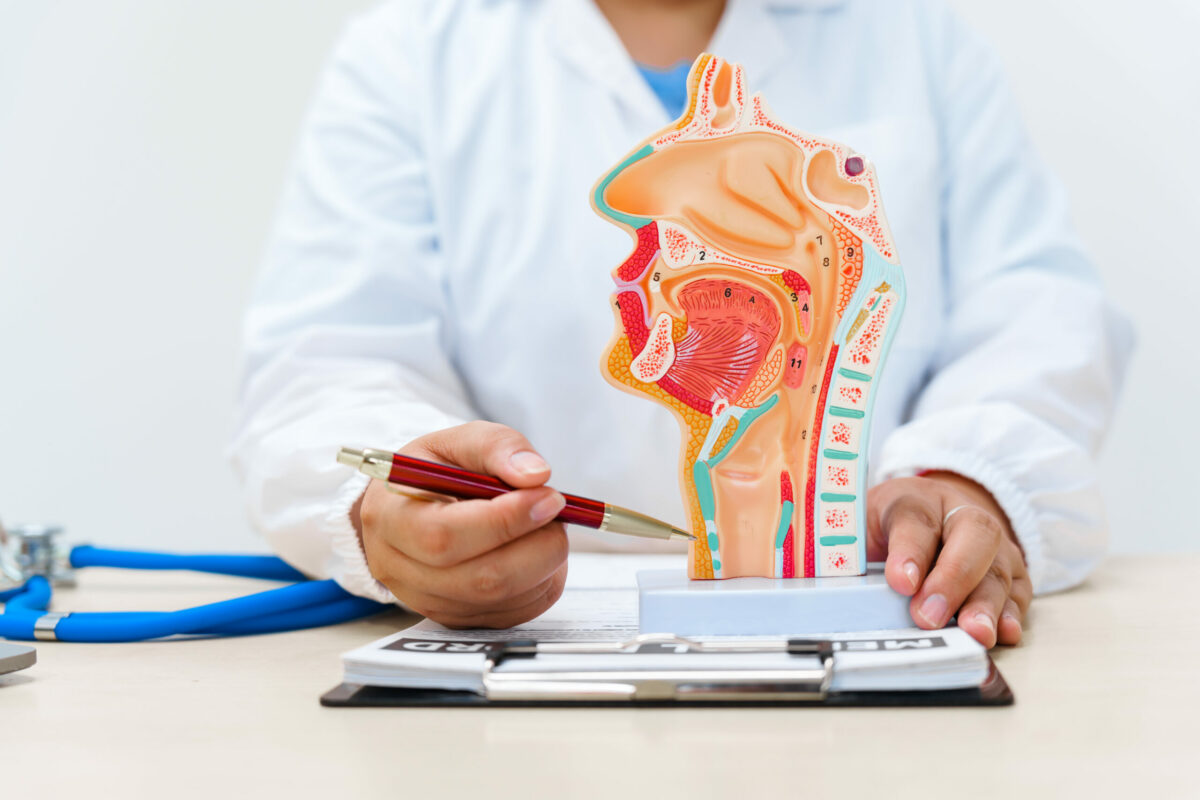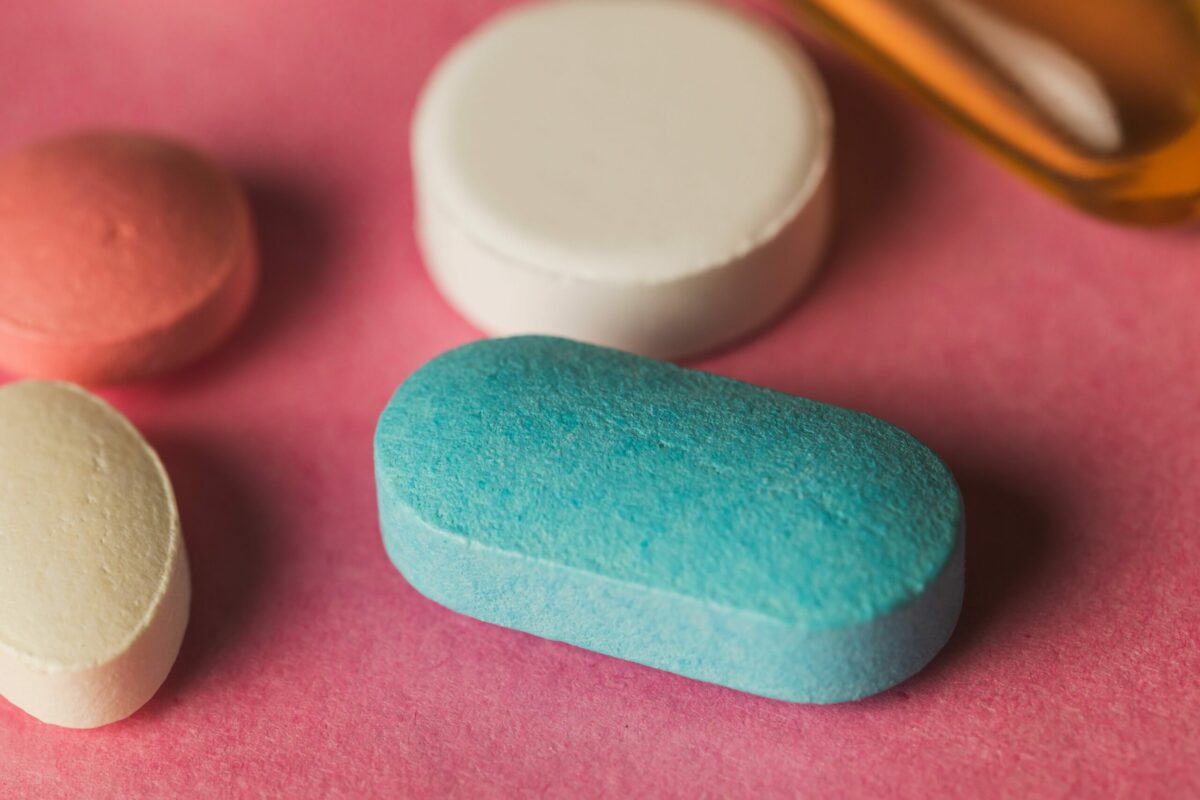A condition in which the muscular tube that carries food from the mouth to the stomach (the esophagus) becomes inflamed (swelling and irritation) is called esophagitis. Swelling and irritation occur in the tissue that lines the esophagus.
This condition may cause pain or trouble swallowing and chest pain. However, there are multiple factors that may cause esophagitis. The most common ones include acid reflux, infections, allergies, and certain oral medications.
The treatment for this condition depends on the severity of the esophagitis and the exact cause. However, if you ignore the symptoms and do not treat the disease, you may have problems with moving food and liquids from the mouth to the stomach and other serious health problems. For example esophagus scarring or narrowing, unusual weight loss caused by malnutrition, and dehydration (loss of body fluids).
Symptoms
Check below the most common esophagitis symptoms:
- Trouble or painful swallowing
- Food may stuck in the esophagus (also called food impaction)
- Heartburn (also called burning chest pain)
- Acid reflux (it occurs when the stomach acid returns to the esophagus)
Check below some symptoms that may happen in infants or your children with esophagitis:
- Pain in the abdomen or chest
- Failure to thrive
- Poor appetite
- Backaches
There are multiple symptoms that may occur due to other digestive system conditions. In any case, you should visit the doctor if the symptoms last more than several days or if they do not improve despite using over-the-counter pain relievers (such as antacids).
Immediately, seek emergency care if any of the following cases occur. For example:
- Experience chest pain for more than several minutes
- Have a medical history of heart disease and experience angina (chest pain)
- Suspect that food gets stuck in the esophagus
- Experience shortness of breath or pain while eating
Causes
Physicians usually label esophagitis according to the condition that causes it. In some cases, this esophagus condition may have multiple causes. Check below the most common causes of esophagitis:
Reflux Esophagitis
There is a valve called the lower esophageal sphincter that often keeps stomach acid out of the esophagus. However, in some cases, it does not close properly, which allows the acid to go backward into the esophagus. In some people, the acid that goes backward into the esophagus is a health condition called hiatal hernia.
In addition, people usually experience esophagus damage and swelling due to GERD (gastroesophageal reflux disease), which causes acid backflow.
Eosinophilic Esophagitis
This condition occurs when a buildup of white blood cells happens in the esophagus. Moreover, white blood cells play an important role in allergic reactions. Therefore, it happens as an allergic reaction to food, acid reflux, or others. Check below some foods that may trigger eosinophilic esophagitis:
- Eggs
- Milk
- Wheat
- Soy
- Peanuts
- Seafood
However, people with this disease may have other allergies that are not caused by food. These include air allergens (such as pollen), food impaction (it happens when food gets stuck in the esophagus after swallowing), and dysphagia (swallowing problems).
Lymphocytic Esophagitis
This condition happens rarely and it causes an increased level of white blood cells buildup in the esophagus lining. Without treatment, it may lead to eosinophilic esophagitis or GERD.
Medicine-induced Esophagitis
This type occurs when medicines taken by mouth cause damage to the esophagus tissue. For example, if a medicine stays in direct contact with the esophagus lining for long periods it may cause damage and it often happens when you take a pill with little or no water. Check below some medications linked with esophagitis:
- Pain relievers (such as Aspirin, Ibuprofen, and Naproxen sodium)
- Antibiotics (such as Tetracycline, Doxycycline, and others)
- Potassium chloride (a medicine used to treat reduced Potassium levels in the blood)
- Bisphosphonates (such as Alendronate) are used to treat osteoporosis (bone loss)
- Certain medications used to treat heart conditions (such as Quinidine)
Infectious Esophagitis
Esophagitis also may occur due to an infection of the esophagus tissue. This infection may occur due to fungi, viruses, or bacteria. However, this esophagitis type happens very rarely. In most cases, infectious esophagitis negatively affects people with weakened immune systems (such as those with cancer or HIV/AIDS).
Another common cause of infectious esophagitis is a fungus present in the mouth. It is called Candida albicans and often is linked with a weakened immune system, cancer, diabetes, and other health problems.
Risk Factors
There are multiple factors that may increase the risk of esophagitis. However, the factors are different depending on the condition type. Check below some of them:
Reflux Esophagitis
The following factors may increase the risk of GERD and reflux esophagitis. For example:
- Eating right before bed or meals that are too fatty and large
- Smoking
- Extra weight gain (such as during pregnancy)
Check below for additional foods that may worsen GERD and reflux esophagitis symptoms:
- Caffeine
- Alcohol
- Fatty foods
- Chocolate
- Peppermint
Eosinophilic Esophagitis
These include:
- A family history of eosinophilic esophagitis
- A medical history of allergic reactions such as asthma, atopic dermatitis, and allergic rhinitis (also called hay fever)
Medicine-induced Esophagitis
In most cases, the risk factors for this esophagitis type are linked with problems that prevent the complete and quick passage of a pill into the stomach. These include:
- Taking a pill with little or no water
- Administering medicines while lying down
- Take medications right before sleep
- Being older
- The tablets or pills are large or oddly shaped
Infectious Esophagitis
At increased risk of developing this type of esophagitis are people who take steroids or antibiotics and those who have diabetes. Sometimes, an increased risk of developing infectious esophagitis happens due to a weakened immune system due to conditions such as HIV infection and cancer or immunosuppressant medicines.
Complications
People who do not get treatment for this condition may develop esophagus structure changes. Check below some complications of esophagitis:
- Stricture (esophagus narrowing or scarring)
- Esophagus lining tearing
- Barrett’s esophagus (this condition often happens due to damage from acid reflux and it is considered a precancerous condition)
Diagnosis
Physicians usually diagnose the condition by performing several tests. They also may ask you some questions about symptoms and medical and family history. Check below some tests often used to confirm esophagitis:
- Endoscopy – It involves a long and thin tube with a camera on the end to check the digestive system (including the esophagus). Sometimes, they may remove small samples of esophagus tissue for biopsy.
- Esophageal capsule – This test involves a capsule attached to a string. After taking this capsule, it dissolves into the stomach and then releases a sponge. Thereafter, your doctor will pull out the sponge.
- Barium X-ray – This is an imaging test that involves taking a specific solution (called barium) that helps get clearer images during X-ray. Barium X-ray may help doctors identify structure changes in the esophagus, a hiatal hernia, tumors, and others.
- Laboratory tests – These include blood tests, biopsy, and others. Commonly, doctors perform laboratory tests to check for viral, bacterial, or fungal infections, white blood cell count, and other abnormalities.
Treatment
The treatment goal is to reduce the symptoms, treat the underlying condition, and prevent complications. Commonly, treatments are different among people because it depends on the severity and type of the condition, your age, and other factors.
Reflux Esophagitis
- Over-the-counter (OTC) medicines – These include H-2 receptor blockers (such as Cimetidine) and proton pump inhibitors (such as Lansoprazole and Omeprazole).
- Prescription drugs – Including H-2 receptor blockers and proton pump inhibitors.
- Surgery – Doctors usually recommend fundoplication. This surgery helps improve the esophagus disease when other treatment options do not work. During this procedure, surgeons will wrap a part of the stomach around the valve between the stomach and the esophagus.
Eosinophilic Esophagitis
Treatment for this condition involves avoiding the triggers that cause the symptoms, medicines, and dietary changes. Check below some medicines often prescribed by doctors for people with eosinophilic esophagitis:
- Proton pump inhibitors – These medicines are used to block stomach acid and heal the esophagus. For example Lansoprazole, Omeprazole, Pantoprazole, or Esomeprazole.
- Steroids – Physicians usually prescribe Budesonide or Fluticasone.
- Monoclonal antibodies – Doctors may recommend Dupilumab to reduce inflammation by blocking certain proteins.
Medicine-induced Esophagitis
To treat this type of esophagitis, you should not take the triggering medicine when it is possible. However, doctors may recommend the following:
- Administer an alternative medicine to reduce the risk of developing this esophagitis type
- You can also take a liquid form of the medicine
- Do not lie down for at least 30 minutes after administering the medicine
- Take the pill or tablet with a glass full of water
Infectious Esophagitis
For people with this type of esophagitis, doctors usually prescribe one of the following medications. These include anti-fungal medicines, anti-viral medicines, or antibiotics depending on the cause.
Home Remedies and Lifestyle Changes
These include:
- Avoid foods that cause acid reflux and do not eat large meals, especially before bed. For example, drinks that contain caffeine or alcohol, chocolate, and mint-flavored foods.
- Administer the tablet with plenty of water before eating. Moreover, you should not lie down for at least 30 minutes after taking the medicine.
- Quit smoking or never begin
- Try to get and maintain a healthy weight for you
- It is advised to avoid stooping or bending, especially right after eating
Frequently Asked Questions
What are the esophagitis causes?
- Allergies (commonly to foods)
- Infections that cause a weakened immune system
- Medical procedures (such as radiation therapy)
- Over-the-counter pain relievers (such as Aspirin)
- Chronic vomiting
- Acid reflux
What are the primary esophagitis symptoms?
If you experience any of the following symptoms, do not hesitate to contact your doctor. For example:
- Painful or difficult swallowing
- Heartburn
- Feeling that something is stuck in the throat
This article does not contain all possible symptoms of esophagitis. For more details, discuss it with your healthcare professional.
What are the possible complications of esophagitis?
People with esophagitis may experience some complications, especially without treatment. Examples include:
- Failure to thrive
- Chronic respiratory conditions
- Esophageal lining tearing
- Bleeding
- Barrett’s esophagus
- Esophageal stricture
Immediately visit a doctor if any of the previous complications occur. If you have additional questions, ask your physician.




